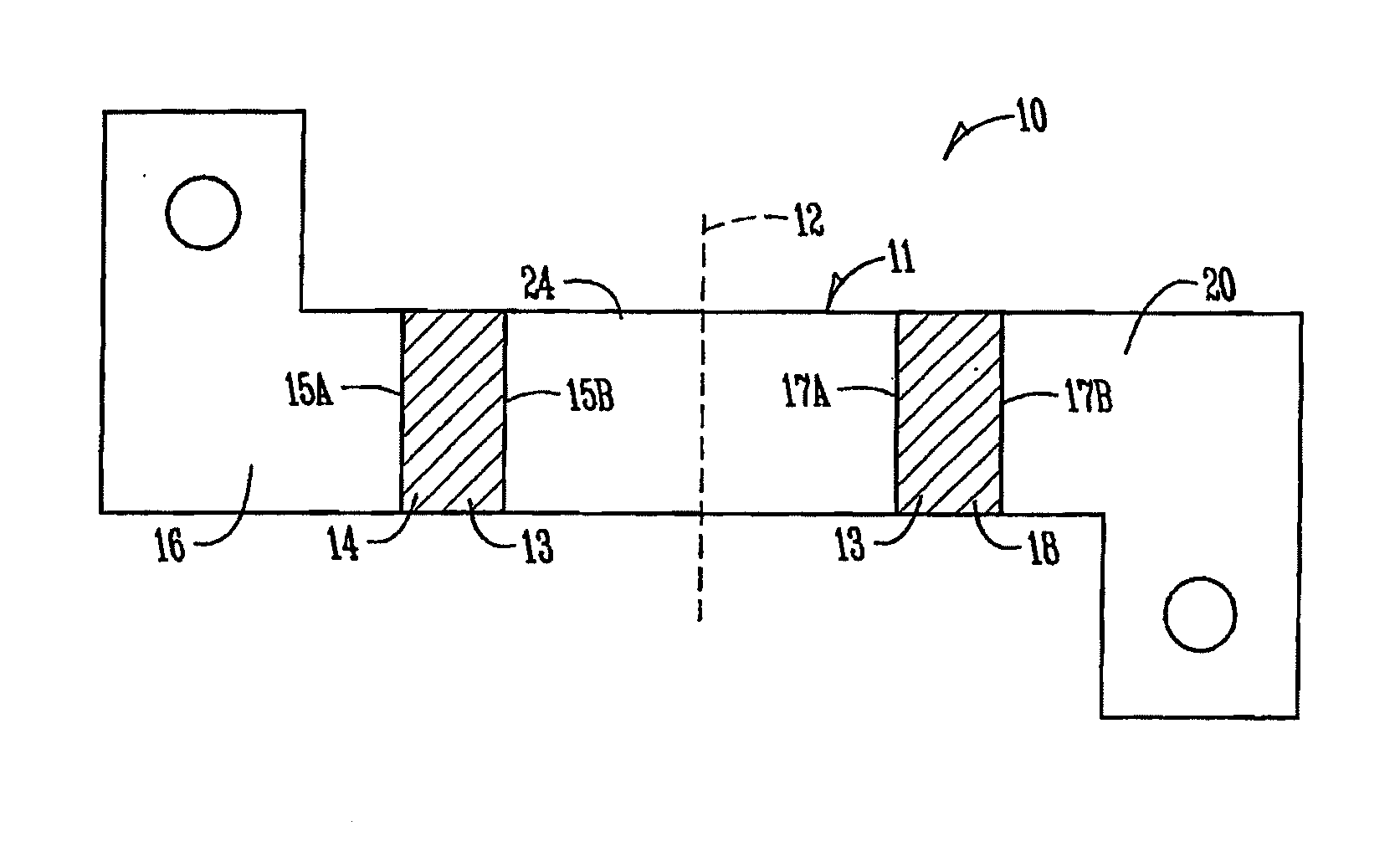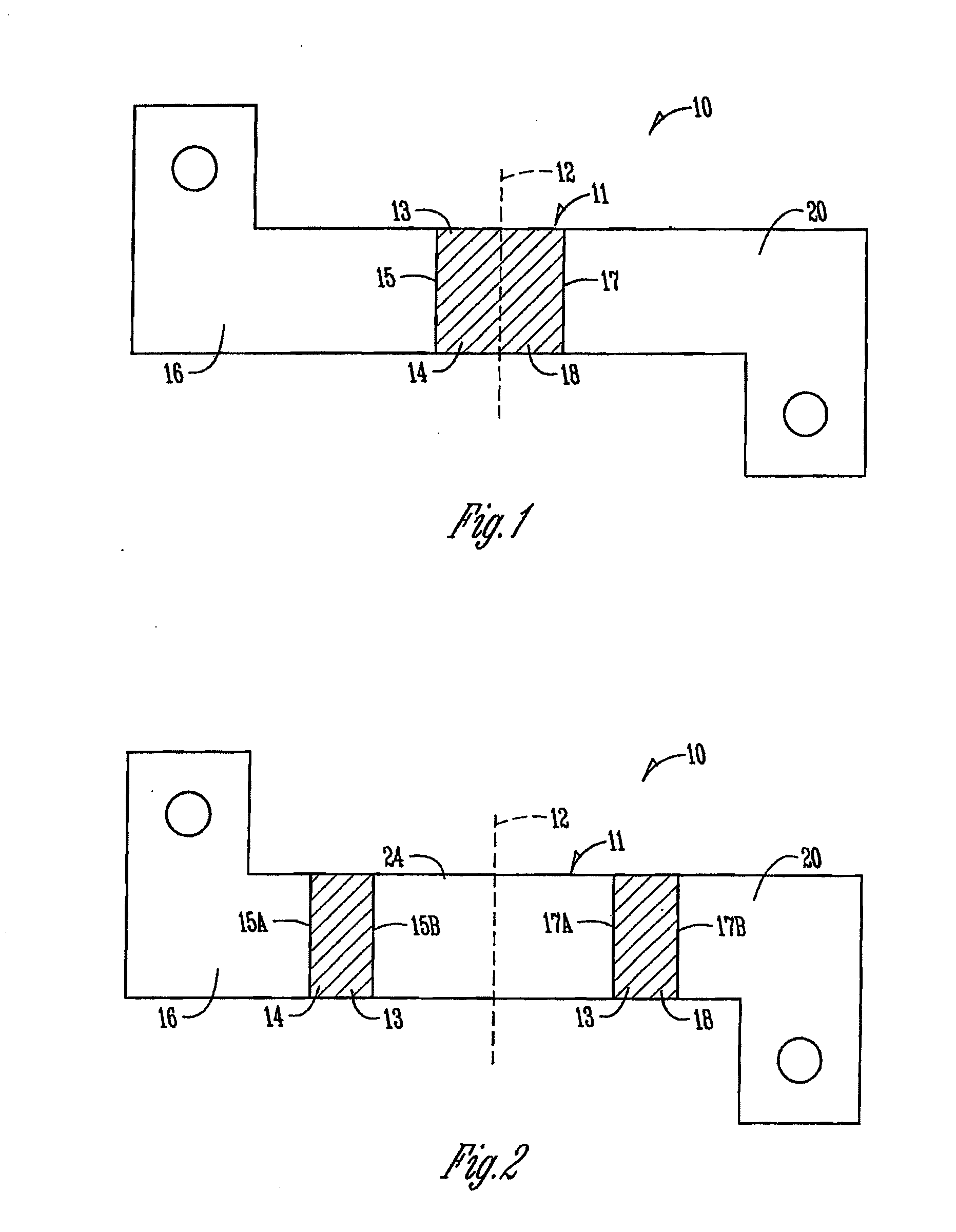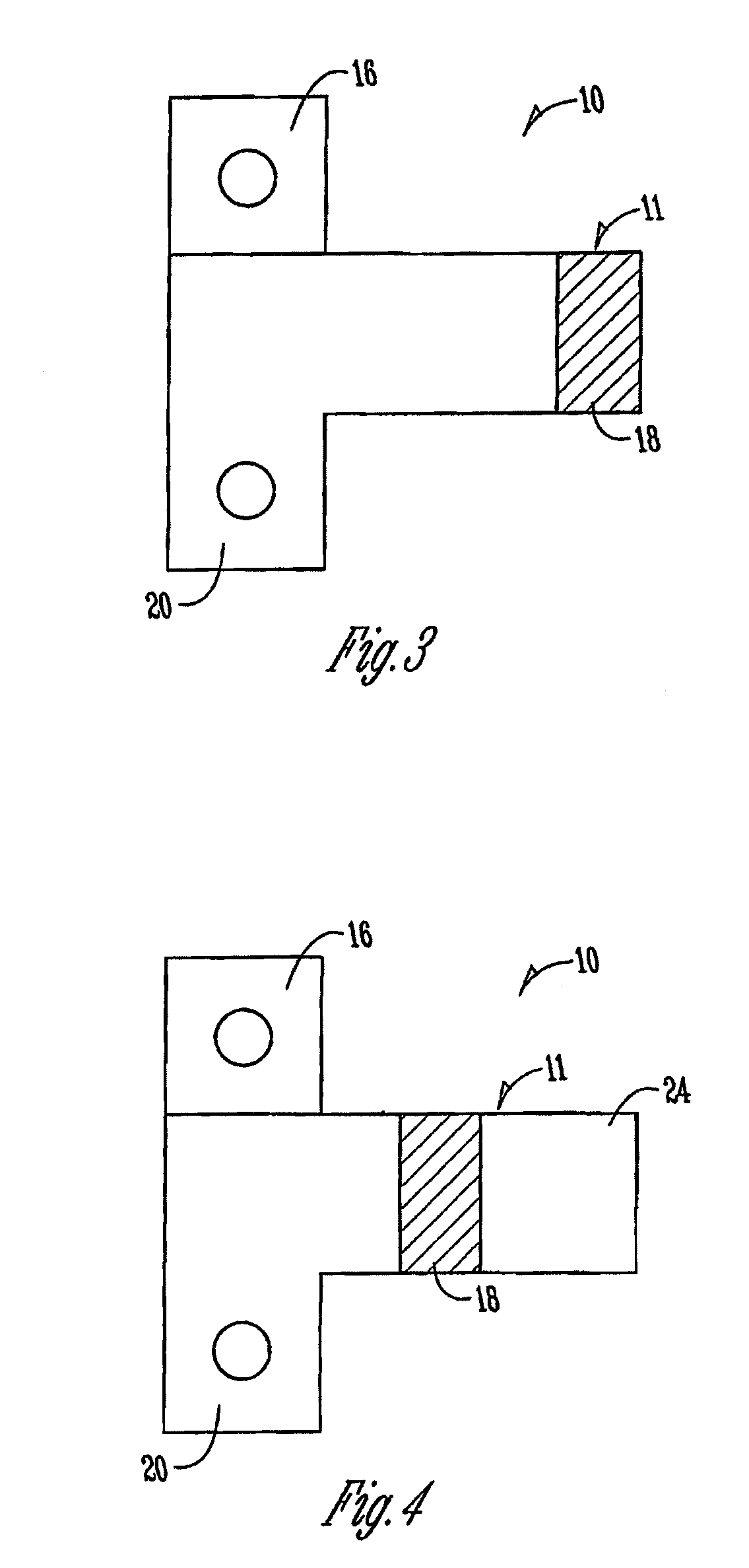Metal strip resistor for mitigating effects of thermal emf
a technology of resistors and metal strips, applied in the field of resistors, can solve the problems of significant measurement errors, increased cost, and resistors susceptible to adverse effects of thermal emf, and achieve the effect of reducing the effect of thermally induced voltages
- Summary
- Abstract
- Description
- Claims
- Application Information
AI Technical Summary
Benefits of technology
Problems solved by technology
Method used
Image
Examples
Embodiment Construction
[0023]The embodiments disclosed herein provide a resistor for mitigating effects of thermal electromotive force (EMF). This allows the use of any number of types of metal resistance alloy regardless of thermal EMF and negates any termination to termination temperature differential. The embodiments disclosed herein achieve desirable results by using appropriate resistor geometries, metal forming, and / or heat transfer materials.
[0024]Note that, rather than change a resistor's resistive element material and / or termination material, or add compensation circuitry to offset the thermal EMF of a specific set of resistor metal alloys, the embodiments disclosed herein provide for using a geometry that brings both metallic junctions to the same temperature. In overcoming the problem in this way the embodiments disclosed herein function regardless of the metal alloys used and their specific thermal EMF characteristics. Thus, the embodiments disclosed herein are not limited to particular types ...
PUM
 Login to View More
Login to View More Abstract
Description
Claims
Application Information
 Login to View More
Login to View More - R&D
- Intellectual Property
- Life Sciences
- Materials
- Tech Scout
- Unparalleled Data Quality
- Higher Quality Content
- 60% Fewer Hallucinations
Browse by: Latest US Patents, China's latest patents, Technical Efficacy Thesaurus, Application Domain, Technology Topic, Popular Technical Reports.
© 2025 PatSnap. All rights reserved.Legal|Privacy policy|Modern Slavery Act Transparency Statement|Sitemap|About US| Contact US: help@patsnap.com



